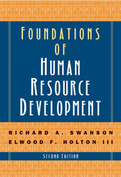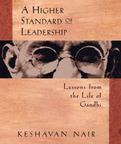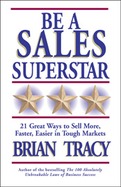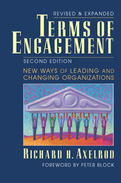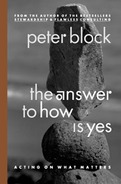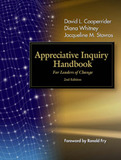The book provides a basic understanding of the HRD models, processes, and history; critical theoretical and philosophical foundations of the field; learning and performance paradigms and models; HRD's role in high-level organizational and systems-level issues; training and development and organization development—including examples of best practices along with variations in core thinking, processes, interventions, and tools; and much more.
The first edition won the Book of the Year Award from the prestigious Academy of Human Resource Development. This second edition has been completely revised, updated, and expanded, with new chapters on component HRD theories, policy and planning, technology, and globalization, as well as supplemental study materials, PowerPoint presentations, and figures available online at www.textbookresources.net.
- By the preeminent scholars in the field of HRD
- The only comprehensive treatment of HRD theory and practice available
- Written to be useful to established HRD professionals, beginners in the field, researchers, and students
o How to embody the values of service, truth, and personal responsibility in leadership roles
o Insights about management, leadership, and purpose from a successful businessman and perceptive student of Gandhi's life and writings
Though Gandhi is one of the most written-about figures of the twentieth century, this is the first book to apply lessons from his life to the practical tasks faced by contemporary leaders-from corporate managers and executives to government administrators, nonprofit professionals, educators, and others.
In times shaped by colonialism, dictatorships, and two World Wars, Gandhi demonstrated that an idealist could also be a practical and effective leader. In our times of increasing cynicism about the quality of leadership we can expect and aspire to, Keshavan Nair reminds us that, "We are all engaged in leadership, in practicing it and selecting those who will lead." In A Higher Standard of Leadership, he offers a pragmatic guide based on the concepts Gandhi exemplified:
o leadership is service, not a path to power and privilege;
o effective goals, decisions, and strategies can be guided by moral principles;
o a single standard of conduct, based on absolute values, should be maintained in both public and private life.
A lifelong student of Gandhi's teachings and a businessman with more than 25 years of experience in corporate and governmental leadership development, Nair is uniquely positioned to bridge the two worlds. Using illustrative examples from Gandhi's life and writings, he identifies commitments-to conscience, openness, service, values, and reduced attachments-and describes the courage and determination necessary to work and lead by them. In simple and direct language, he explores the process of making decisions, setting goals, and implementing actions guided by the spirit of service and commitment to values that is essential to the realization of a higher standard of leadership in our workplaces and communities.
- Shows America's economic system to be at odds with its social and political goals and proposes a system designed to increase personal freedom
- Questions the most basic assumptions that drive our economic system, and argues that its entire structure must be challenged
2003
Brian Tracy shares the most important principles for sales success he has discovered in 30 years of training more than a half million sales professionals in 23 countries.
Based on Tracys detailed discussions with top salespeople and his keen observation of their methods, as well as his own experiences as a record-breaking salesman, these guidelines address both the inner game of sellingthe mental componentand the outer game of sellingthe methods and techniques of actually making the sale.
Concise and action-oriented, Be a Sales Superstar is a handbook for busy sales professionals, providing key ideas and techniques that will immediately increase your effectiveness and boost your results.
Brian Tracy shows you how to:
Get more and better appointments, easier;
Build high rapport in the first few minutes;
Make better, more effective sales presentations
Close more sales faster than ever before
Apply Tracys 21 great ways to be a superstar salesperson, and your success in selling will become unlimited.
2010
Richard Axelrod offers a better way. After debunking six common change management myths, he offers a proven, practical strategy for getting everyone—not just select committees or working groups—enthusiastically committed to organizational transformation. This revised edition features new interviews—everyone from the vice president of global citizenship at Cirque du Soleil to a Best Buy clerk—and new neuroscience findings that support Axelrod's model. It also shows how you can foster engagement through everyday conversations, staff meetings, and work design.
- Winner of the 2001 Breakthrough Business Book of the Year award from Independent Publisher
- Written by the author of the bestselling books Flawless Consulting (more than 500,000 copies sold), The Empowered Manager (more than 250,000 copies sold), and Stewardship (more than 160,000 copies sold)
- Shows how our obsession with tools and techniques actually prevents us from doing things we believe in
- Identifies what is required of us to not only know what matters but to act on that knowledge
One of today's most popular change methods, Appreciative Inquiry (AI) has been used to undertake transformational initiatives in dozens of organizations, ranging from McDonalds to the U.S. Navy to Save the Children.
The assumption of AI is simple. Every organization has things that work right-things that give it life when it is vital, effective, and successful. AI begins by identifying this positive core and connecting organizational visions, plans, and structures to it in ways that heighten energy and inspire action for change.
This book presents all of the concepts, examples, and aids necessary to engage groups of all sizes in Appreciative Inquiry. The authors provide background information on what AI is and how it works and offer sample project plans, designs, agendas, course outlines, interview guidelines, participant worksheets, a list of resources, and more.
This second edition has been extensively revised, updated, and expanded, including new case studies, new tools and supplemental articles, an expanded bibliography and resource list, and an entirely new chapter on case applications. And throughout, the authors focus on how AI can support an organizational focus on sustainability and the triple bottom line of people, prosperity, and planet.
One of today’s most popular change methods, Appreciative Inquiry (AI) has been used to undertake transformational initiatives in dozens of organizations, ranging from McDonald’s to the U.S. Navy to Save the Children. The assumption of AI is simple. Every organization has things that work right—things that give it life when it is vital, effective, and successful. AI begins by identifying this positive core and connecting organizational visions, plans, and structures to it in ways that heighten energy and inspire action for change.
This book presents all of the concepts, examples, and aids necessary to engage groups of all sizes in Appreciative Inquiry. The authors provide background information on what AI is and how it works and offer sample project plans, designs, agendas, course outlines, interview guidelines, participant worksheets, a list of resources, and more. This second edition has been extensively revised, updated, and expanded, including new case studies, new tools and supplemental articles, an expanded bibliography and resource list, and an entirely new chapter on case applications. And throughout, the authors focus on how AI can support an organizational focus on sustainability and the “triple bottom line” of people, prosperity, and planet.


